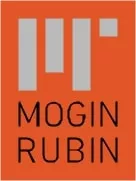Rubin talks about class action to eliminate an unfairness in the broader economy.
Las Vegas, NV (October 25, 2023) — Jonathan Rubin, Partner and co-founder of the California and Washington, D.C.-based antitrust boutique law firm, MoginRubin LLP, delivered the keynote address to the 2023 annual conference of the National ATM Council (NAC) in Las Vegas today.
His remarks gave some of the background to the antitrust dispute in NAC, et al. v. Visa and Mastercard, the class action litigation against the global card networks filed by MoginRubin lawyers in 2011. The dispute concerns the "one price per ATM terminal" network rule that has been in place since Visa and Mastercard lifted their bans on ATM surcharging in 1995, ushering in the independent ATM industry.
When network acquirer fees are equal or roughly equal, Rubin said, these "Access Fee Rules" exert little or no constraints on ATM pricing because roughly equal acquirer fees translate into approximately equal per transaction interchange revenue for ATM Operators.
In 2010, however, Mastercard tripled its acquirer fees from about $0.05 to $0.18 per transaction, creating a gulf between the cost of Mastercard transactions and transactions on other networks. The one price across-the-board rule became a distortion: ATM Operators should be able to adjust retail surcharges to reflect differences in the wholesale price they have to pay, but the Access Fee Rules prevent this. Soon after, Visa followed suit, increasing ATM acquirer fees to $0.15 per transaction.
Litigation History
In 2011, the NAC filed suit in U.S. District Court in Washington, D.C., challenging the Access Fee rules agreed to by the networks' member banks as violations of the antitrust laws as unreasonable restraints on how foreign ATM transactions are priced.
In 2015, the D.C. Circuit Court of Appeals reversed dismissal of the case by the District Court. In 2021, the District Court certified a Class of ATM Operators to seek recovery of anticompetitive acquirer fee overcharges.
Visa and Mastercard received permission to appeal the class certification order to the D.C. Circuit. In 2023, the Circuit Court affirmed the District Court class certification order and sent the case back to the District Court for further proceedings and trial on the merits.
On appeal, Visa and Mastercard claimed ATM Operator Class includes uninjured class members, because: (1) Not all ATM operators appear by name in the networks' billing records, (2) The Class includes "entities that do not receive or pay interchange," i.e., affiliates not ISOs (independent service organizations), (3) The Class includes others, e.g., premises owners, ESOs (encryption service organizations), or cash loaders.
Court of Appeals Opinion
All three arguments were rejected by the D.C. Circuit, Rubin said.
To the claim that not all ATM operators appear by name in the networks' billing records, the Court said: "[O]ne would not expect to find ATM Operator class members identified by name in Defendants' billing records. Mastercard does not maintain a dataset that links ATM Operators to the sponsoring banks that pay network fees on ATM Operators' behalf. ..."

To the claim that the Class includes "entities that do not receive or pay interchange," i.e., affiliates not ISOs, premises owners not ATM operators, the Court said: "ATM Operator class members who assign a portion of their payment obligations and revenues to other entities are no less injured by illegal practices that diminish this revenue."
To the claim that the Class includes others, e.g., premises owners, ESOs, or cash loaders that do not pay acquirer fees and therefore were not injured, the Court observed: "[E]ntities that manage ATM setup, service providers that handle ATM encryption keys, and retail stores that own on-site ATMs but do not originate transactions are excluded from the Class Definition."
Rubin shared with the industry group his view that the case involves "more than eliminating an unreasonable restraint on competition or even compensating ATM operators for past anticompetitive harm." He added, "The case also seeks to eliminate distortion and unfairness in the broader economy, so that all participants can reap the benefits of market competition in the form of transparent and fair pricing for consumers and equal competitive opportunities for smaller businesses and innovative enterprises."
Read the full text of the D.C. Circuit's holdings.
The content of this article is intended to provide a general guide to the subject matter. Specialist advice should be sought about your specific circumstances.
We operate a free-to-view policy, asking only that you register in order to read all of our content. Please login or register to view the rest of this article.


